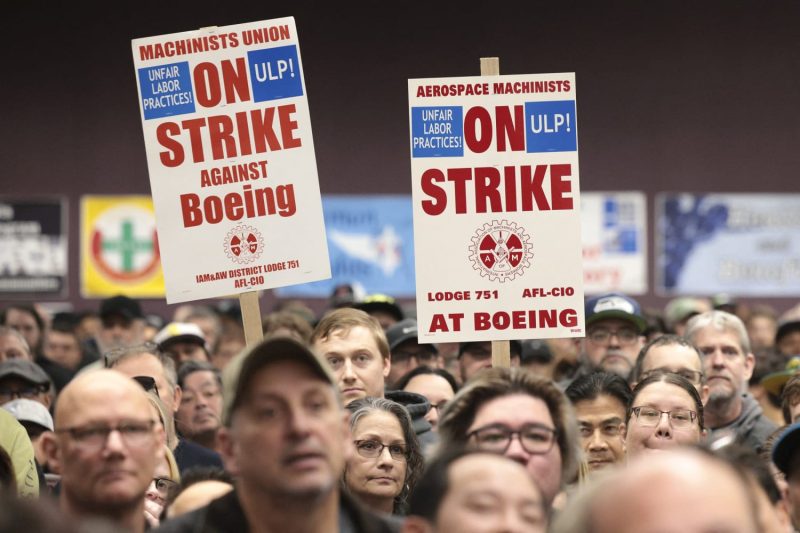
Boeing Machinists In Standoff: Reject New Labor Contract, Extend Strike
The recent rejection of a new labor contract by Boeing machinists has raised significant concerns and created uncertainty about the future of the aviation industry. The decision to extend the strike, which began in October, marks a critical juncture in the ongoing negotiations between the company and its employees represented by the International Association of Machinists and Aerospace Workers (IAM).
One of the key sticking points in the negotiations appears to be related to job security and the outsourcing of work. The rejected contract reportedly contained provisions that would have allowed Boeing to continue sending work to outside suppliers, a practice that has been a point of contention in previous labor disputes. Job security is a central issue for the machinists, who are concerned about the loss of jobs and the potential impact on their livelihoods.
Boeing’s management has expressed disappointment over the rejection of the contract, stating that it had been negotiated in good faith and included significant improvements such as wage increases and pension enhancements. However, the machinists felt that the contract did not adequately address their concerns about job security and outsourcing, leading to its rejection by a significant margin.
The decision to extend the strike further escalates tensions between the company and its employees, with no immediate resolution in sight. The strike has already had a significant impact on Boeing’s production and delivery schedules, causing disruptions to its operations and affecting its bottom line. The longer the strike continues, the greater the potential for continued financial losses and reputational damage for the company.
Both sides have expressed a willingness to return to the bargaining table to continue negotiations, but the rejection of the contract indicates that there are deep-seated issues that need to be addressed. The machinists are adamant about protecting their jobs and ensuring that work remains within the company, while Boeing is keen on managing costs and maintaining its competitiveness in the global market.
As the strike drags on and its effects ripple through the aviation industry, stakeholders are closely watching the developments and hoping for a speedy resolution to the labor dispute. The outcome of the negotiations will not only impact the machinists and Boeing but also have broader implications for the future of labor relations in the industry. Only time will tell whether a compromise can be reached that satisfies both parties and puts an end to the prolonged strike.
